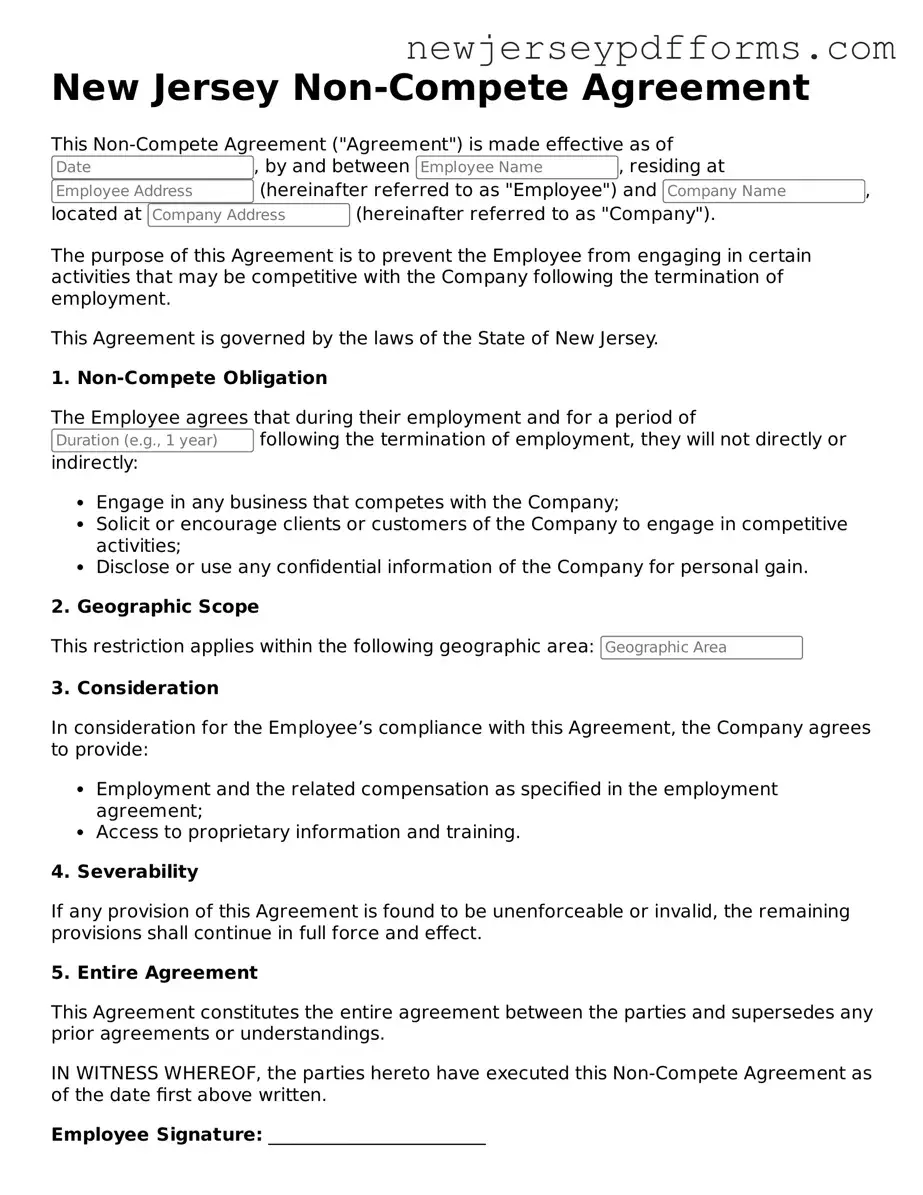What is a Non-compete Agreement in New Jersey?
A Non-compete Agreement is a contract that restricts an employee from working for a competitor or starting a competing business for a certain period after leaving their job. In New Jersey, these agreements are enforceable, but they must meet specific criteria to be valid.
Are Non-compete Agreements enforceable in New Jersey?
Yes, Non-compete Agreements can be enforceable in New Jersey, but they must be reasonable in scope, duration, and geographic area. Courts will evaluate whether the agreement protects legitimate business interests without imposing an undue hardship on the employee.
What factors do courts consider when evaluating a Non-compete Agreement?
Courts in New Jersey typically consider several factors, including the duration of the restriction, the geographic area covered, and whether the agreement protects a legitimate business interest. They also assess whether the agreement imposes an unreasonable burden on the employee's ability to find work.
How long can a Non-compete Agreement last in New Jersey?
While there is no strict rule on duration, Non-compete Agreements in New Jersey are generally expected to be limited to one to two years. Longer durations may be scrutinized and could be deemed unenforceable if they are considered excessive.
Can an employee negotiate a Non-compete Agreement?
Yes, employees can negotiate the terms of a Non-compete Agreement before signing. It's advisable to discuss any concerns or desired changes with the employer. A mutually agreeable contract can lead to better understanding and compliance.
What happens if an employee violates a Non-compete Agreement?
If an employee violates a Non-compete Agreement, the employer may seek legal action. This could result in a court enforcing the agreement, which may include injunctions to prevent the employee from working for a competitor or monetary damages.
Are there any exceptions to Non-compete Agreements in New Jersey?
Yes, there are exceptions. For instance, if an employee is terminated without cause or if the agreement is deemed overly broad or unreasonable, it may not be enforceable. Each case is unique, and the specific circumstances will play a significant role in determining enforceability.
What should I do if I have questions about my Non-compete Agreement?
If you have questions or concerns about your Non-compete Agreement, it's best to consult with a legal professional who specializes in employment law. They can provide personalized guidance based on your specific situation and help you understand your rights and obligations.

